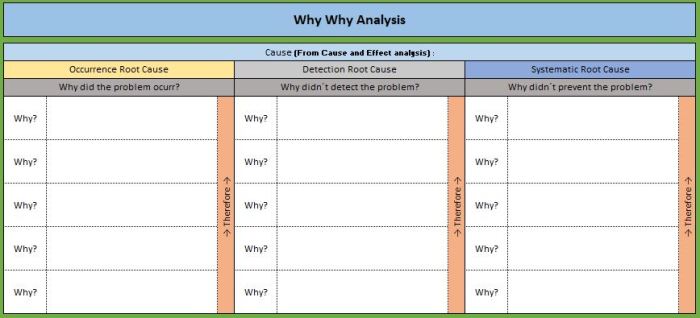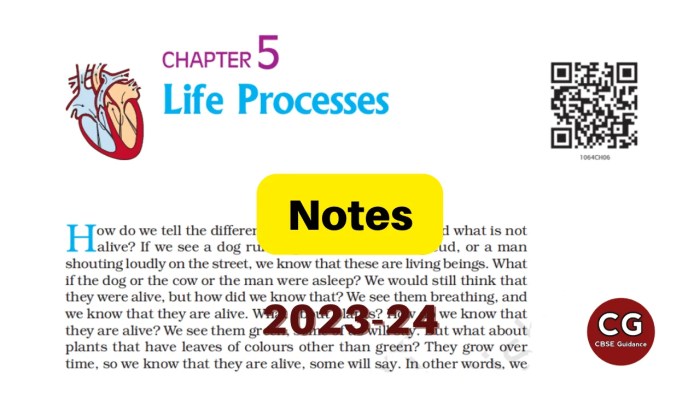When someone tells you to follow your passion you should ask yourself these 7 questions – When someone tells you to follow your passion, you should ask yourself these 7 questions: Is it truly a passion, or just a fleeting interest? What are the potential benefits and drawbacks? What about practicality and financial considerations? This post delves into the often-overlooked realities of pursuing your passions, offering a practical framework to navigate this crucial decision.
Following your passion can lead to incredible fulfillment and innovation. However, it’s vital to understand the potential pitfalls and obstacles. This guide equips you with a critical perspective and actionable steps to evaluate your passions thoughtfully. The seven questions presented here will help you navigate the complex intersection of personal desires and practical realities.
Understanding the Phrase “Follow Your Passion”
The phrase “follow your passion” is a common piece of advice, often presented as a straightforward path to happiness and fulfillment. It suggests that aligning your work and life with your deepest desires will inevitably lead to a satisfying and successful existence. However, a deeper examination reveals complexities and potential pitfalls within this seemingly simple concept.This advice, while well-intentioned, often overlooks the multifaceted nature of human motivation and the practical realities of life.
The simplistic approach can lead to unrealistic expectations and even frustration if the path isn’t as clear-cut as initially imagined. A critical look at the concept of “passion” itself, and how societal pressures shape our understanding of it, is essential for a more nuanced perspective.
Common Interpretations of “Following Your Passion”
The phrase typically implies pursuing activities that deeply engage and excite you. It often centers on a strong feeling of enjoyment and enthusiasm for a particular field, hobby, or interest. This pursuit is frequently seen as the key to a fulfilling life, suggesting that work becomes play and that happiness is directly correlated with the pursuit of one’s “passion.”
Potential Pitfalls and Limitations
One major pitfall is the oversimplification of the process. “Passion” is not always easily identifiable or consistently present. It can fluctuate, change, or even disappear over time. Additionally, the assumption that a single, unwavering passion exists for everyone is unrealistic. Individuals may possess multiple interests and motivations, making a singular focus challenging.
Furthermore, external factors like financial constraints, practical considerations, and societal expectations can significantly impact the pursuit of one’s perceived passion. A job that aligns with one’s “passion” might not always be financially viable, highlighting the limitations of the advice.
Different Perspectives on “Passion”
The concept of “passion” is not universally defined. Some interpret it as an intense, enduring love for a particular subject, while others view it as a more fleeting interest or a temporary enthusiasm. Some see passion as an innate quality, while others believe it can be cultivated and developed over time. This variability in understanding leads to diverse approaches to pursuing one’s “passion.”
Societal Pressures and the “Passion” Ideal
Societal pressures often shape our understanding of what constitutes a “passion.” Media portrayals and cultural narratives can influence our perceptions of desirable careers and lifestyles, creating expectations that might not align with individual desires or realities. This can lead to feelings of inadequacy or pressure to conform, hindering the genuine exploration of one’s interests.
Passion vs. Interest vs. Skill: A Comparative Analysis
| Characteristic | Passion | Interest | Skill |
|---|---|---|---|
| Definition | A strong, enduring enthusiasm for something, often driving motivation. | A temporary or sustained engagement with something, generally less intense than passion. | The ability to perform a task proficiently, often developed through practice and learning. |
| Intensity | High, often overwhelming | Variable, can be high or low | Variable, depending on the level of proficiency |
| Duration | Potentially long-lasting | Temporary or sustained | Develops over time |
| Motivation | Drives significant effort and dedication | Prompts engagement but not always consistent effort | Provides the ability to perform tasks efficiently |
This table highlights the distinctions between passion, interest, and skill. While passion often overlaps with interests, it differs significantly in its driving force and potential impact on one’s life choices. Skill, on the other hand, is a practical component that complements passion and interest.
Examining the Potential Benefits of Following Your Passion

Following your passion isn’t just a feel-good mantra; it can be a powerful catalyst for personal and professional growth. When you align your work with your true interests, a unique set of benefits can emerge, fostering a more fulfilling and impactful life. This exploration delves into the positive outcomes of pursuing a passion, highlighting the role of intrinsic motivation and showcasing examples of successful individuals who have leveraged their passions.The pursuit of a passion often leads to a more engaged and motivated approach to tasks.
When you’re genuinely interested in what you’re doing, the work feels less like a chore and more like an adventure. This intrinsic motivation fuels creativity and innovation, leading to a more impactful and fulfilling experience. It’s a powerful engine for personal and professional development.
Positive Outcomes of Passion-Driven Pursuits
Passion fuels a unique kind of engagement and drive that transcends the ordinary. This leads to a deeper level of satisfaction and fulfillment, far exceeding the satisfaction derived from simply earning a living. Passionate individuals tend to be more resilient in the face of challenges, as their inherent interest in the subject matter helps them to overcome obstacles with greater tenacity.
Examples of Successful Individuals Who Followed Their Passion
Numerous individuals have achieved remarkable success by following their passions. For instance, Steve Jobs, driven by a passion for technology and design, revolutionized personal computing and consumer electronics. Similarly, Oprah Winfrey, driven by her passion for communication and empowerment, built a media empire that has profoundly impacted millions. These examples illustrate how passion can be a potent force for both personal and societal impact.
How Passion Fuels Creativity and Innovation
Passion fosters a deep understanding and engagement with a subject matter. This deep engagement, in turn, fuels creativity and innovation. When individuals are truly invested in a field, they tend to see patterns and connections that others might overlook, leading to novel approaches and solutions. This inherent curiosity, driven by passion, is a key ingredient in breakthrough discoveries and innovative thinking.
So, someone tells you to “follow your passion”? Before you leap, ask yourself these crucial questions. But, what if you’re having a rough day? Remember to check in with yourself, and remind yourself of these 7 things when you have a bad day, to help you navigate the tough times remind yourself these 7 things when you have bad day.
Ultimately, reflecting on these practical points will help you approach those passion-related questions with a more grounded perspective.
The Role of Intrinsic Motivation in Passionate Pursuits
Intrinsic motivation plays a crucial role in the success of passion-driven pursuits. When individuals are motivated by an inherent interest in a task, they are more likely to persevere through challenges and setbacks. This internal drive is a powerful force for long-term commitment and achievement, fostering sustained effort and resilience.
Various Paths to Passionate Pursuits
| Path | Description |
|---|---|
| Entrepreneurship | Launching a business based on a personal passion, often involving risk-taking and innovation. |
| Creative Arts | Expressing passion through art forms like writing, music, painting, or filmmaking. |
| Social Impact | Using passion to address societal challenges, often through volunteer work, advocacy, or social enterprises. |
| Specialized Profession | Developing a career within a specific field aligned with a passion, often requiring advanced education and skill development. |
| Volunteerism | Contributing time and effort to a cause or organization that resonates with a passion, without financial compensation. |
| Mentorship/Teaching | Sharing knowledge and passion with others, guiding and inspiring future generations. |
| Research/Academia | Exploring and advancing knowledge in a field that aligns with a passion, often involving academic pursuits and research. |
Potential Downsides of Following Your Passion

Following your passion is often lauded as the key to a fulfilling life, but it’s crucial to acknowledge the potential downsides. While pursuing your true interests can lead to incredible rewards, it’s not always a smooth, financially secure path. Recognizing the potential challenges and preparing for them is vital to making informed decisions about your career and life goals.The pursuit of passion isn’t without its obstacles.
Sometimes, what feels like a burning desire in the present may fade or change over time. Also, passions don’t always translate into viable careers, requiring careful consideration of practicality and financial sustainability. Understanding the potential downsides empowers you to make more realistic and well-rounded decisions about your future.
So, someone tells you to follow your passion? Before you leap, ask yourself these 7 crucial questions. But hold on, what if decluttering your life could actually unlock a better path? Check out 4 scientific reasons decluttering leads to a better life – it might just reveal hidden connections between a tidy space and a clear mind.
Ultimately, knowing what truly ignites your passion, and not just what feels trendy, is key to a fulfilling life. So, those 7 questions are more important than ever.
Financial Constraints and Practical Limitations
Financial security is often overlooked when the allure of passion is strong. Many passionate endeavors, while fulfilling, may not yield immediate or substantial financial returns. This reality can lead to significant financial strain, especially if you have dependents or substantial financial obligations. The need for practical considerations like job security and income stability can sometimes clash with the pursuit of a passion-driven career.
Importance of Practicality in Career Choices
Practicality plays a critical role in career choices. While passion is important, careers need to be sustainable and provide a stable income. It’s essential to consider the market demand, required skills, and potential for long-term success when choosing a career path. A purely passion-driven approach without considering these practical elements can lead to unforeseen difficulties.
Examples of Individuals Facing Hardship in Pursuing Passion
Many individuals have followed their passions, only to face significant challenges. For instance, a talented artist might struggle to make a living solely from their art, requiring a second job or alternative income stream. A musician with a strong passion for live performance might find their income volatile, depending on gig opportunities and audience attendance. These examples highlight the importance of balancing passion with practical considerations.
Advantages and Disadvantages of Following Your Passion
| Aspect | Advantages | Disadvantages |
|---|---|---|
| Financial Stability | Potential for deep satisfaction and fulfillment | May not yield immediate or substantial financial returns |
| Career Fulfillment | Stronger sense of purpose and motivation | Limited market demand or lack of clear career path |
| Personal Growth | Opportunity for skill development and mastery | Potential for financial instability and stress |
| Creativity and Innovation | Ability to contribute unique perspectives and ideas | May not be financially rewarding or practical in the short term |
| Long-Term Career | Sustained interest and motivation | Difficult to balance with financial needs and market demands |
Seven Questions to Ask Yourself
Following your passion is a deeply personal journey. It’s a path that requires careful consideration and introspection. While the allure of pursuing your heart’s desires is undeniable, blindly leaping into a passion without a thorough assessment can lead to unforeseen challenges. A well-structured evaluation process can significantly increase the likelihood of success and fulfillment.
Cruciality of Asking These Questions
Understanding your passion is only the first step. Crucial to navigating this path is a comprehensive self-assessment. These seven questions serve as a roadmap, helping you to evaluate the long-term viability and potential rewards of pursuing your passion. By thoughtfully considering these questions, you can make informed decisions, avoid pitfalls, and cultivate a stronger sense of purpose.
Seven Questions for Passion Pursuit
A well-considered approach to passion pursuit involves a comprehensive self-assessment. This involves asking yourself pertinent questions that go beyond the initial excitement and delve into the practicalities of making a passion a sustainable career path. These questions can be crucial in helping you identify the real-world implications and potential challenges of your chosen path.
- What are the specific skills and knowledge required to effectively pursue this passion?
- What is the potential market demand for this passion or related skills?
- What is the required financial investment (time, money, resources) to start and maintain this passion?
- What are the potential obstacles or challenges that could arise during the pursuit of this passion?
- What is the potential for personal and professional growth associated with this passion?
- What are the alternatives if this passion doesn’t pan out as expected?
- How can I effectively manage the balance between my passion and other important aspects of my life?
Evaluating Your Passion
These questions aren’t meant to discourage you but rather to help you realistically assess the potential rewards and challenges associated with pursuing your passion. Thoughtfully considering the skills needed, market demand, financial commitment, and potential roadblocks will provide a more grounded perspective on your passion’s feasibility. This self-assessment allows for a more nuanced understanding of the potential trajectory of your chosen path.
Analyzing Long-Term Viability
Considering the long-term viability of a passion involves a careful evaluation of its sustainability. By considering the potential obstacles and alternatives, you can develop a more comprehensive plan. This forward-looking approach will help you navigate the path more effectively and make more informed decisions about your career.
Summary Table
| Question | Potential Answers |
|---|---|
| What are the specific skills and knowledge required to effectively pursue this passion? | (e.g., technical skills, creative abilities, interpersonal skills) |
| What is the potential market demand for this passion or related skills? | (e.g., high demand, niche market, fluctuating demand) |
| What is the required financial investment (time, money, resources) to start and maintain this passion? | (e.g., low startup costs, significant investment, ongoing maintenance fees) |
| What are the potential obstacles or challenges that could arise during the pursuit of this passion? | (e.g., competition, economic downturns, personal setbacks) |
| What is the potential for personal and professional growth associated with this passion? | (e.g., career advancement, skill enhancement, personal fulfillment) |
| What are the alternatives if this passion doesn’t pan out as expected? | (e.g., backup career options, alternative skill development) |
| How can I effectively manage the balance between my passion and other important aspects of my life? | (e.g., time management, prioritizing, seeking support) |
Analyzing the Practicality of Your Passion: When Someone Tells You To Follow Your Passion You Should Ask Yourself These 7 Questions
Following your passion is a noble pursuit, but it’s crucial to ground this aspiration in reality. Simply feeling a strong connection to something isn’t enough; assessing its practicality is vital for long-term success and fulfillment. This involves a critical examination of the resources, skills, and opportunities available to you in your chosen area of interest.Practicality in this context isn’t about diminishing your passion, but rather about navigating the path toward achieving your goals in a sustainable way.
So, someone tells you to “follow your passion”? Before you sprint off in a new direction, pause. Ask yourself these seven questions to make sure you’re not just chasing a fleeting fancy. Ultimately, feeling good about yourself is crucial for navigating life’s twists and turns. For example, check out these 8 tips on how to feel good about yourself without comparing yourself to others 8 tips feel good about yourself without making any comparisons.
Once you’ve got a clearer picture of your own needs and desires, then you can confidently pursue your passions with a more realistic and sustainable approach. Remember, knowing yourself is the first step to truly following your passion.
It’s about bridging the gap between your dreams and the tangible steps required to make them a reality. A crucial component of this analysis involves understanding the potential market demand, your personal skillset, and the necessary steps to develop the required competencies.
Assessing the Feasibility of Pursuing a Passion
Practical assessment of a passion requires a systematic approach. This involves identifying the potential career paths aligned with your passion and researching the necessary skills and qualifications. It’s essential to determine whether the passion aligns with current or emerging market demands.
Researching Potential Career Paths
Thorough research is crucial for aligning your passion with potential career paths. This involves exploring job descriptions, salary expectations, and the overall market demand for professionals in that field. Utilizing online job boards, industry reports, and networking with professionals in the field can provide valuable insights. For example, if your passion is sustainable fashion, research the job roles within the industry, like sustainable fashion designer, ethical fashion consultant, or a sustainability manager in the textile industry.
Understanding the requirements, job outlook, and potential salary ranges provides a realistic picture of the career path’s feasibility.
Developing Necessary Skills and Learning
Developing the required skills and knowledge is a fundamental part of making your passion a practical reality. Identify the skills gaps between your current skillset and the demands of the chosen career path. This could involve formal education, vocational training, or self-directed learning. For instance, if your passion is software development, identify the specific programming languages and frameworks needed for the desired role and embark on a learning journey to acquire those skills.
Resources for Assessing Passion Practically
Numerous resources can help you assess your passion practically. Online courses, workshops, career counseling services, and industry-specific websites offer guidance and support in navigating the complexities of turning your passion into a sustainable career. For example, platforms like Coursera, edX, and LinkedIn Learning offer courses on various career paths, including those related to sustainable fashion.
Balancing Passion with Practical Considerations
| Passion | Practical Considerations | Strategies for Balance |
|---|---|---|
| Sustainable Fashion Design | Market demand for sustainable clothing, required skills in design and materials, potential for entrepreneurship | Gain experience through internships, develop a strong portfolio, research potential clients, create a business plan |
| Wildlife Conservation | Job opportunities in conservation organizations, research and fieldwork experience, potential for volunteering | Gain practical experience through volunteering, develop skills in wildlife biology, research job opportunities with conservation organizations |
| Software Development | Demand for software engineers, required programming skills, ongoing learning in the tech industry | Enroll in coding bootcamps, practice coding regularly, participate in online communities, network with software developers |
Integrating Passion with Practicality
Turning a passion into a sustainable career requires more than just heartfelt enthusiasm. It necessitates a strategic blend of your passions with practical skills and market demands. This crucial step involves recognizing the potential of your passion and developing the tools to translate it into a viable career path. Ignoring the practical aspects can lead to disillusionment and a lack of financial stability.
Finding the sweet spot between your heart’s desires and the realities of the job market is essential for long-term success.A balanced approach is key to a fulfilling and financially secure career. It’s not about abandoning your passion, but rather understanding how to channel it into a practical, sustainable, and potentially lucrative venture. This involves evaluating the market demand for your passion, identifying necessary skills, and developing a plan to acquire them.
Strategies for Combining Passion with Practical Skills
Successfully merging passion and practicality requires a proactive approach. This includes identifying the skills needed to translate your passion into a tangible career. For example, if your passion is cooking, you might need to develop skills in food safety, recipe development, menu planning, and business management. These practical skills can transform your passion into a viable business or career.
Furthermore, understanding the current job market trends and the demand for specific skills is critical.
Building a Sustainable Career Path Around a Passion
Building a sustainable career path around your passion involves careful planning and execution. Start by assessing your passion and its potential market value. Identify the required skills and determine your existing strengths and weaknesses. Create a plan to bridge the gap between your passion and the necessary skills. This might involve taking courses, attending workshops, or gaining practical experience.
Furthermore, networking and seeking mentorship from people who have successfully integrated passion and practicality can accelerate your progress.
Examples of People Who Successfully Integrated Passion and Practicality
Numerous individuals have successfully combined passion with practicality to build thriving careers. For instance, a chef passionate about sustainable cuisine might start a catering business specializing in locally sourced ingredients. Similarly, a graphic designer with a passion for social impact might develop visual content for non-profit organizations. These examples highlight how passion can be transformed into a profitable venture with a clear understanding of the necessary practical skills and market demands.
Importance of Adaptability and Flexibility in Pursuing a Passion
The path to combining passion and practicality is not always linear. Adaptability and flexibility are essential for navigating unexpected challenges and market shifts. Embrace learning new skills and adjusting your approach based on feedback and market trends. Continuously adapting to the changing demands of the job market is crucial for longevity and success. Embrace new technologies and adapt to evolving industries.
Be open to changing your strategy and refining your approach as needed.
Table Illustrating Ways Passion Can Be Applied in a Practical Context
| Passion | Practical Application | Required Skills |
|---|---|---|
| Photography | Commercial photography, social media management, photo editing | Photography techniques, editing software, marketing, business acumen |
| Writing | Content creation, blogging, journalism, copywriting | Grammar, style, research, , writing software |
| Cooking | Restaurant management, food blogging, catering, cookbook authoring | Culinary skills, business management, marketing, food safety |
| Gardening | Landscaping design, urban farming, creating a garden business | Gardening techniques, design principles, business management, sales |
Exploring Alternative Paths and Opportunities
Following your passion is a beautiful aspiration, but it’s equally important to acknowledge that passion can evolve and that other paths might hold exciting opportunities. This exploration goes beyond simply identifying your current passions; it involves a proactive search for alternative career avenues that align with your values and skills, even if they aren’t immediately apparent.Discovering new possibilities is a continuous process, much like uncovering hidden interests or talents.
It often involves stepping outside your comfort zone, embracing lifelong learning, and adapting to changing circumstances. This proactive approach ensures that your career journey is not just about fulfilling a single passion but about discovering and developing a multifaceted skillset that will serve you well throughout your life.
Strategies for Exploring Alternative Career Paths
Identifying potential career paths requires a structured approach. Begin by analyzing your existing skills, interests, and values. Look for transferable skills that might be applicable to various fields. Research industries and roles that interest you, even if they seem unrelated to your current passions. Networking with professionals in different fields can provide valuable insights and open doors to unexpected opportunities.
Identifying Hidden Passions or Interests
Passions aren’t always readily apparent. Often, they lie dormant, waiting to be discovered. Engaging in hobbies, trying new activities, and participating in workshops or classes can uncover hidden talents and interests. Reflect on experiences that have brought you joy or fulfillment. These experiences can reveal underlying passions that might not have been apparent before.
Explore subjects or areas that pique your curiosity. Even a seemingly small interest can lead to a fulfilling career path.
Resources for Discovering Alternative Career Paths, When someone tells you to follow your passion you should ask yourself these 7 questions
Numerous resources can assist in navigating the path to alternative career choices. Online platforms offer career assessments, job boards, and industry insights. Professional networking groups, mentorship programs, and career counseling services can provide valuable guidance and support. Books and articles on career development and exploration can offer practical strategies and inspiring examples. Government resources and educational institutions can provide information on various career paths and training programs.
Lifelong Learning and Adaptability
In today’s dynamic job market, lifelong learning and adaptability are essential. Embrace opportunities to acquire new skills and knowledge. Stay updated on industry trends and technological advancements. Be open to evolving your skills and adapting to changing circumstances. This continuous learning ensures that you remain relevant and competitive in the job market, regardless of the career path you choose.
Table: Career Paths and Potential Connections to a Given Passion
| Passion | Potential Career Paths | Connection Description |
|---|---|---|
| Photography | Photojournalist, Architectural Photographer, Product Photographer, Social Media Manager | Photography skills can be used in various fields, from documenting events to showcasing products. |
| Writing | Technical Writer, Copywriter, Content Marketer, Journalist, Author | Writing skills are transferable across diverse fields, allowing for creative expression in various roles. |
| Data Analysis | Data Scientist, Business Analyst, Market Research Analyst, Financial Analyst | Data analysis skills are valuable in many sectors, aiding in informed decision-making and problem-solving. |
| Helping Others | Social Worker, Counselor, Teacher, Nurse, Doctor | A passion for helping others can manifest in numerous healthcare and social service roles. |
Closing Summary
Ultimately, pursuing your passion is a personal journey that demands careful consideration. By asking yourself these seven questions, you can begin to discern whether your passion is truly aligned with your long-term goals and well-being. Don’t just follow the siren song of passion; approach it with a strategic and realistic mindset. This empowers you to make informed choices and forge a fulfilling path forward.











